
Monthly
Stainless Trivia
Fill in your answer below
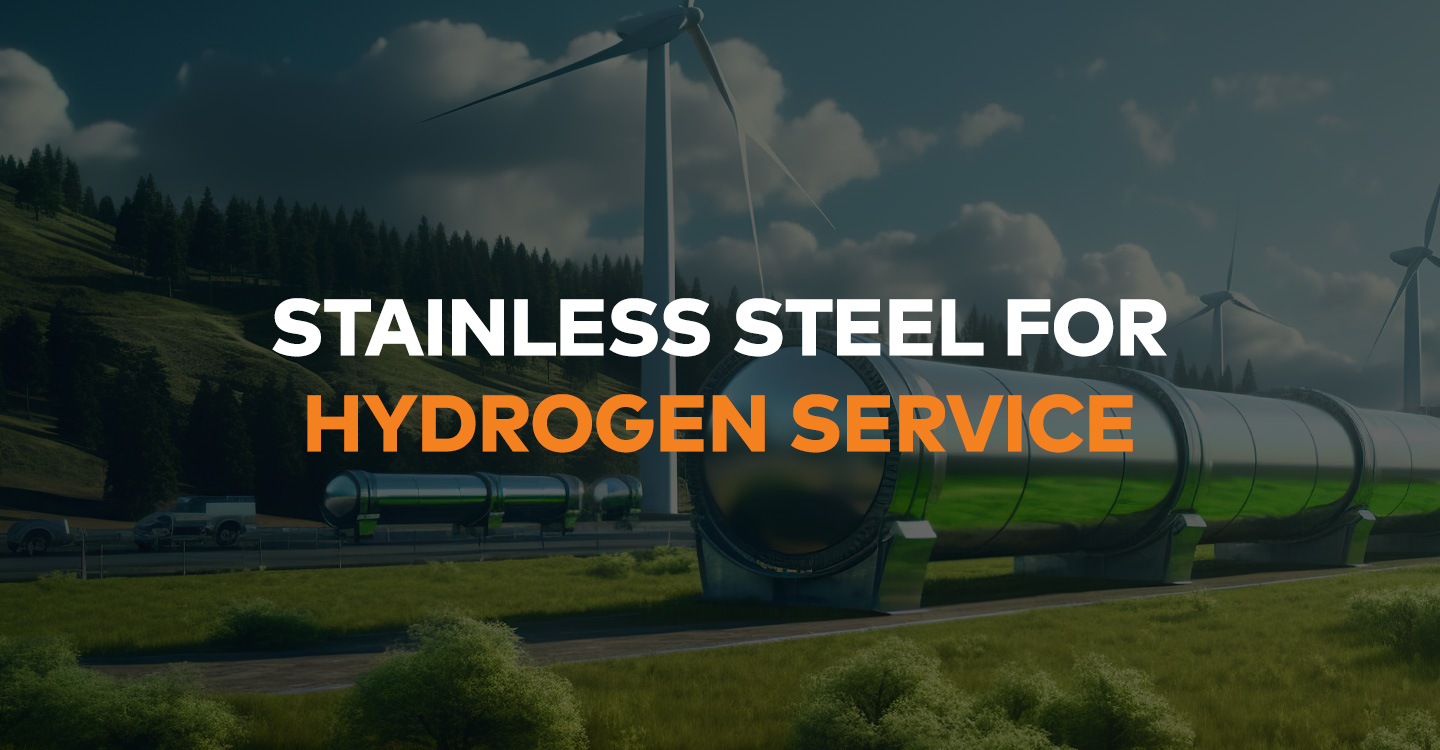
Stainless Steel for Hydrogen Service

Significance Of Hydrogen In The Era Of Energy Revolution
Green Hydrogen emerges as a beacon for a sustainable future in the dynamic energy revolution landscape. This promising fuel has garnered substantial attention in recent years, and its potential to decarbonise diverse sectors of the economy has become a focal point in discussions about the future of energy. Green Hydrogen stands out as the future's fuel, distinguished by its eco-friendly production process, particularly electrolysis. Unlike conventional methods such as Steam Methane Reforming, Pyrolysis of Natural Gas, and Biomass reforming, Green Hydrogen utilises renewable energy sources to split water into hydrogen and oxygen. This breakthrough process generates hydrogen without direct greenhouse gas emissions, significantly striding towards a cleaner energy landscape.
By harnessing clean energy inputs, Green Hydrogen not only establishes a virtuous cycle but becomes a catalyst for a more sustainable future. This innovative solution aligns with global efforts to combat climate change and transition towards renewable energy sources, defining the next era of energy consumption. A significant concern for Hydrogen has been its storage, transportation and distribution to hydrogen-induced corrosion (HIC) and hydrogen embrittlement. Austenitic stainless steel is a versatile and corrosion-resistant material, distinguished by its remarkable properties, including high solubility, lower diffusivity, and robust resistance against material degradation caused by hydrogen. Known for its strength, ductility, and non-magnetic attributes, it provides outstanding corrosion resistance and high-temperature strength and meets stringent hygiene standards
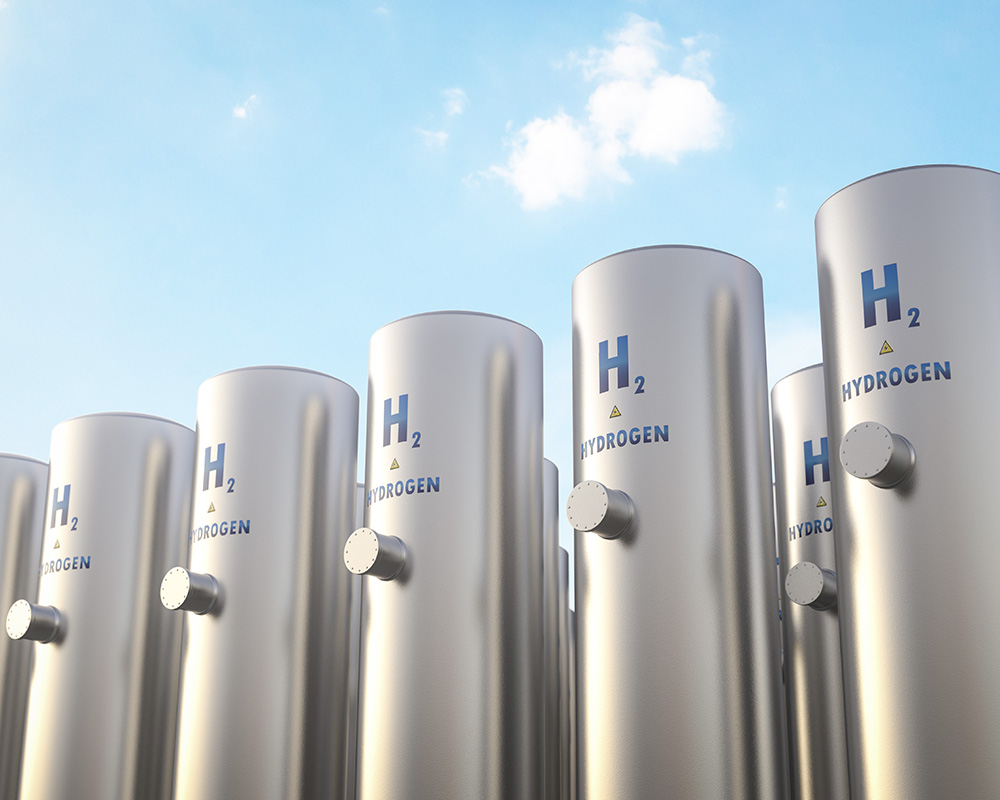
Cryogenic Storage & Transportation
With the increasing demand for liquid hydrogen storage and transportation, Jindal Stainless finds it necessary to conduct systematic, comprehensive research on stainless steel materials for liquid hydrogen storage and transportation vessels to establish the performance characteristics of different types of stainless steel.
Austenitic stainless steels emerged as the preferred choice for the secure design of storage and transportation vessels in liquid hydrogen environments. Drawing from rigorous experiments, it has been established that Austenitic grades 316L and 304L(Ni≥9.5%) stand out as optimal selections for applications involving the storage and transfer of liquid hydrogen. These grades exhibit superior characteristics, including heightened phase stability and robust resistance to hydrogen embrittlement. The inherent stability of these austenitic stainless steels ensures structural integrity, making them reliable and safe for deployment in the complex conditions associated with handling liquid hydrogen. In navigating the challenges posed by this unique environment, these specific stainless steel grades prove to be essential for ensuring the integrity and safety of storage and transportation systems.
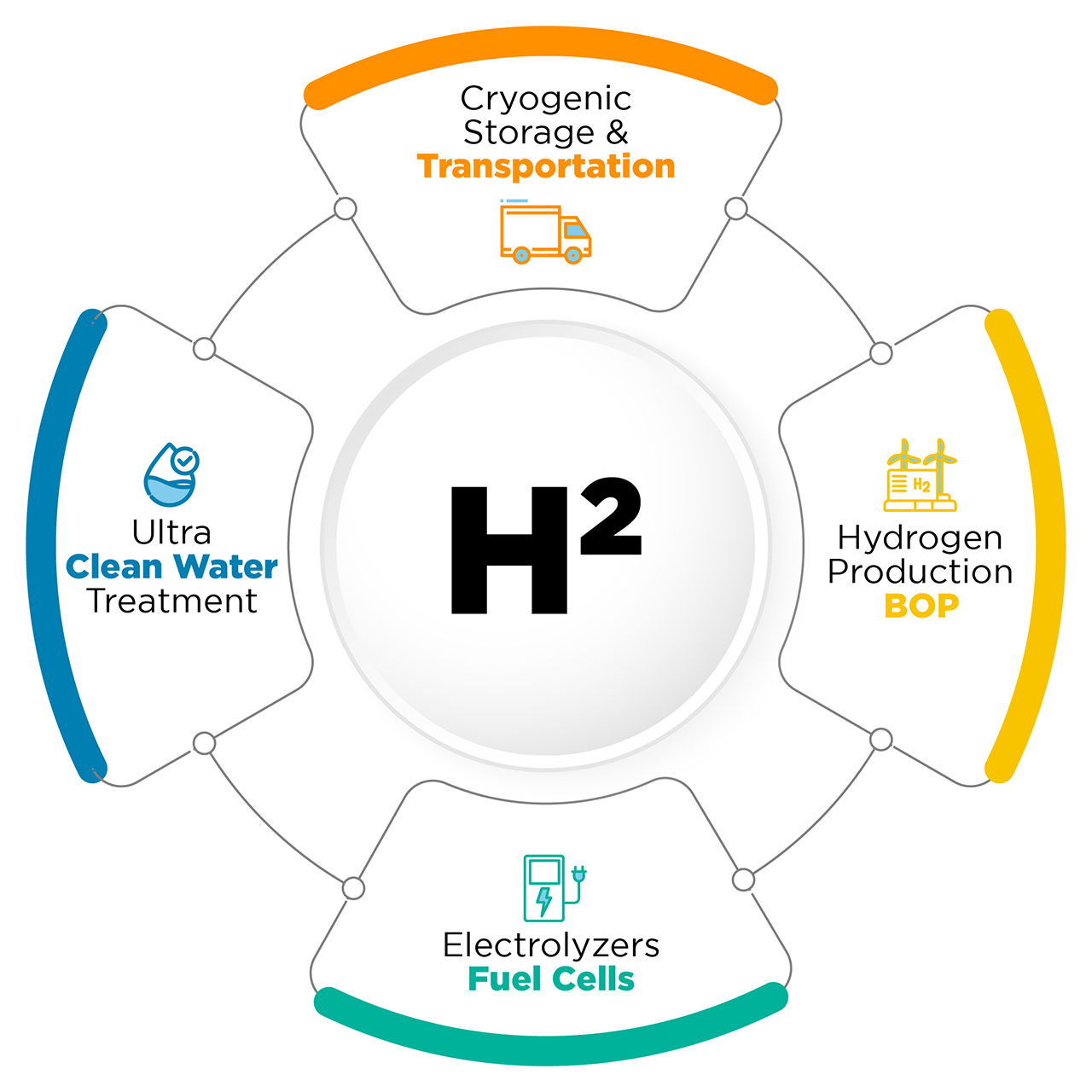
Performance results from the experiments carried out at -196deg Celcius as per ISO standards
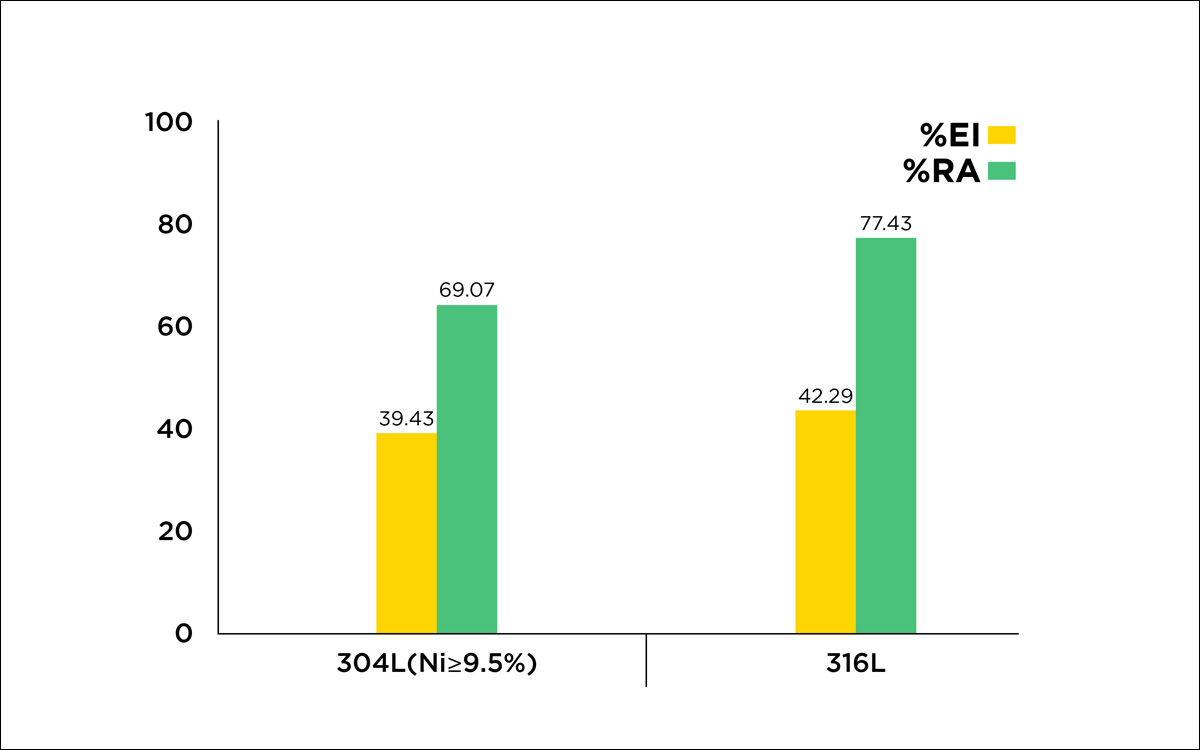
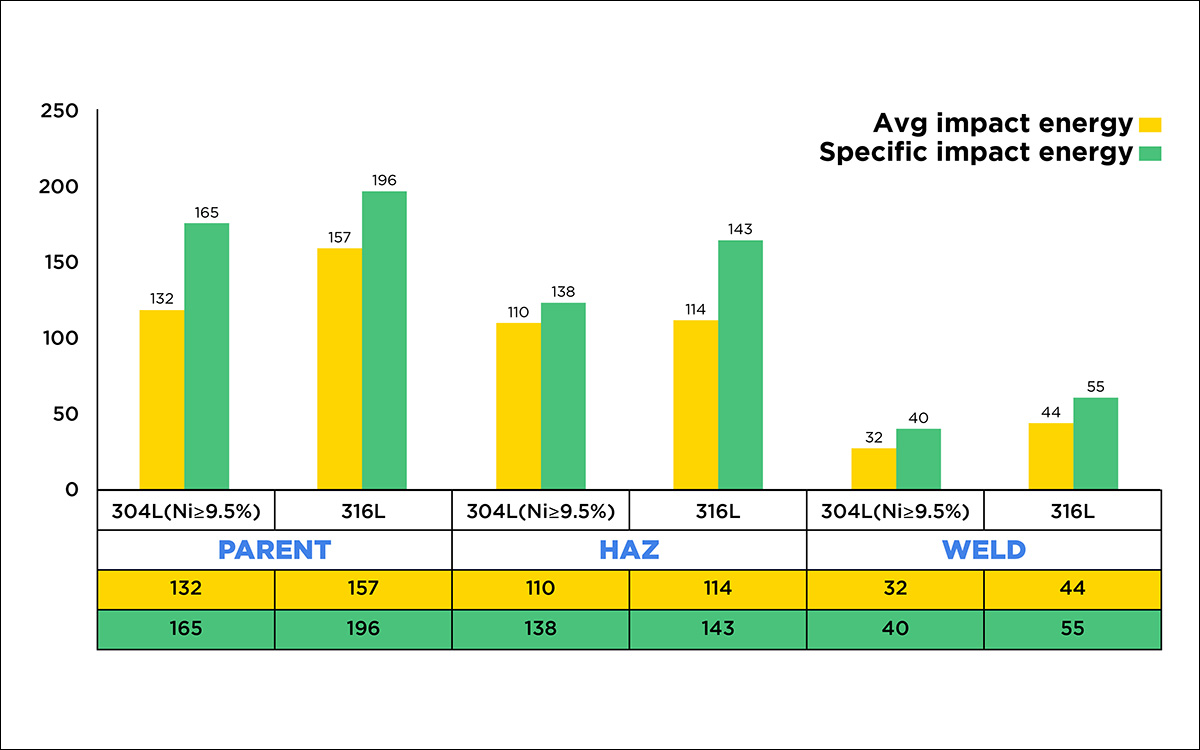
Electrolysers and Fuel Cells
Stainless steel proves indispensable in various components of electrolysers and fuel cells, including bipolar plates, anode and cathode plates, endplates, frames, and connecting parts. Austenitic grades such as 316L emerge as strong contenders for electrolysers due to their optimal blend of electrical conductivity, high corrosion resistance, excellent formability, and high strength.
BOP Equipment
Stainless steel is pivotal in diverse applications within Balance of Plant (BOP) equipment, encompassing pressure vessels, filters, driers, hydrogen and oxygen separators, alkali tanks, and buffer/storage tanks. Austenitic stainless steel, known for its high ductility and strength, emerges as the ideal material, ensuring safe and gas-tight storage.
Water Treatment
Water quality is paramount for equipment efficiency and longevity in hydrogen production through electrolysis. Stainless steel is crucial in water treatment processes such as desalination and ozonation to maintain the ultra-purity required for efficient electrolysis, ensuring the treated water meets stringent quality standards.
